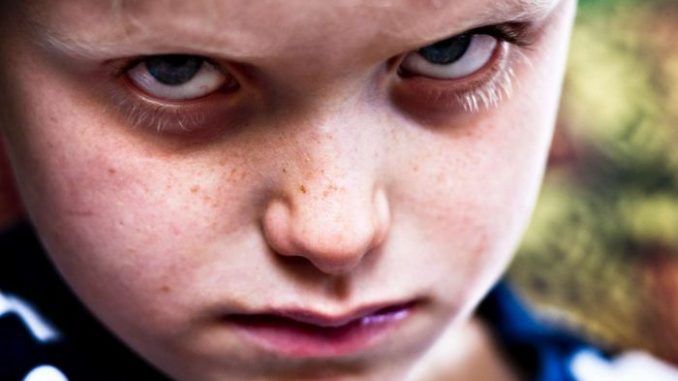
Though child psychopaths make great villains in fictional horror movies, the horrific mental disorder is very real.
From an article in QZ.com:
Two recent psychological studies have found ways of spotting whether young children are vulnerable of becoming psychopaths, suggesting that parents don’t have total control over their offspring’s callous or cruel behavior.

BYPASS THE CENSORS
Sign up to get unfiltered news delivered straight to your inbox.
You can unsubscribe any time. By subscribing you agree to our Terms of Use
Researchers at the University of New South Wales have found that some children as young as three years old display callous-unemotional traits (CU traits), which are linked to psychopathy. Children with these traits didn’t react strongly like other children in the study to images of people in distress, such as a child crying, and also struggled to recognize changing facial expressions.
“Until now we didn’t really have a way to identify those traits in very young children,” Eva Kimonis, the lead author of the study, which involved more than 200 children between the ages of three and six, told the Sydney Morning Herald. “This is really the first study which uses tools adapted for very young children and the sooner those children are identified, the earlier they can be helped.”
Meanwhile, a UK study of more than 200 infants by researchers from King’s College London, the University of Manchester, and the University of Liverpool, found that it’s possible to predict whether five-week-old babies will go on to develop CU traits. Infants who preferred to look at a human face, rather than an inanimate red ball, were less likely to develop CU traits as a toddler, according to the study published in Biological Psychiatry.
Though there’s evidence to suggest that psychopathy is influenced by genetics, researchers believe that parents could nurture their children in ways that could help them develop empathy.
The UK study found that if a mother responds more sensitively to her baby during playtime, the child is less likely to display callous unemotional behavior as a toddler. The University of New South Wales researchers also are trying to help parents find ways to develop their children’s emotional skills.
“There’s been a real shift toward trying to prescribe medication to these very young children, which is concerning because we don’t know how safe that is,” Kimonis told the Sydney paper. “We’re targeting the problem from a different angle and focusing on adapting parent management training programs that are known to be effective for other antisocial children. … We coach the parents how to be very warm, involved and loving with them to see if that reduces those callous traits over time.”

